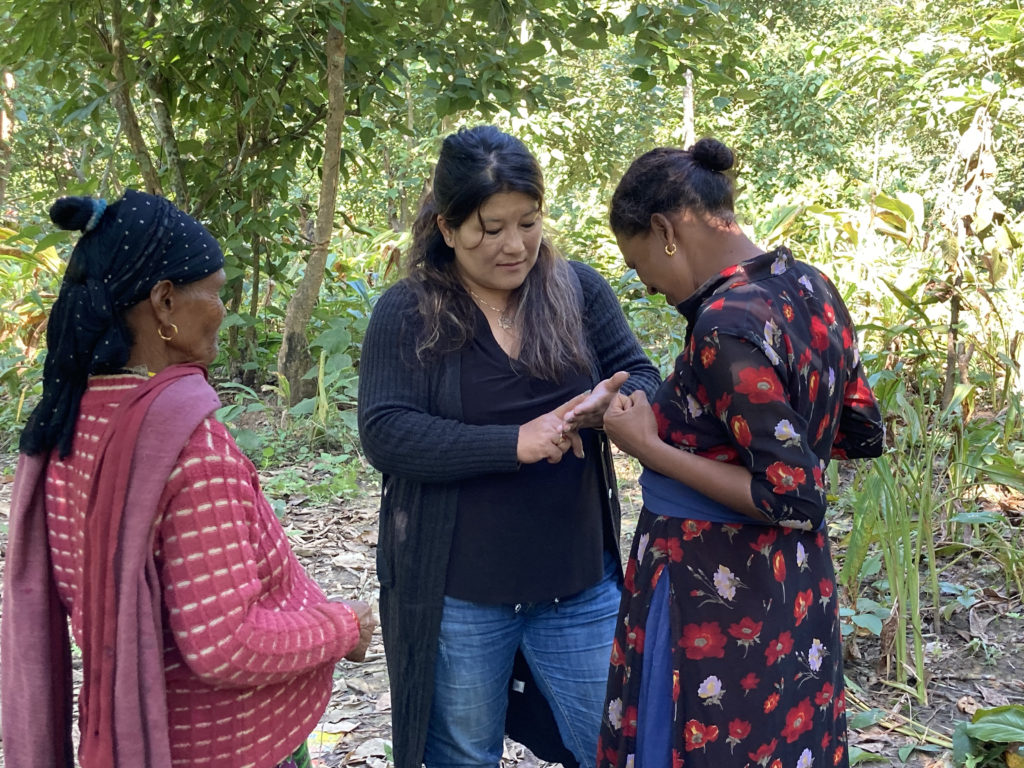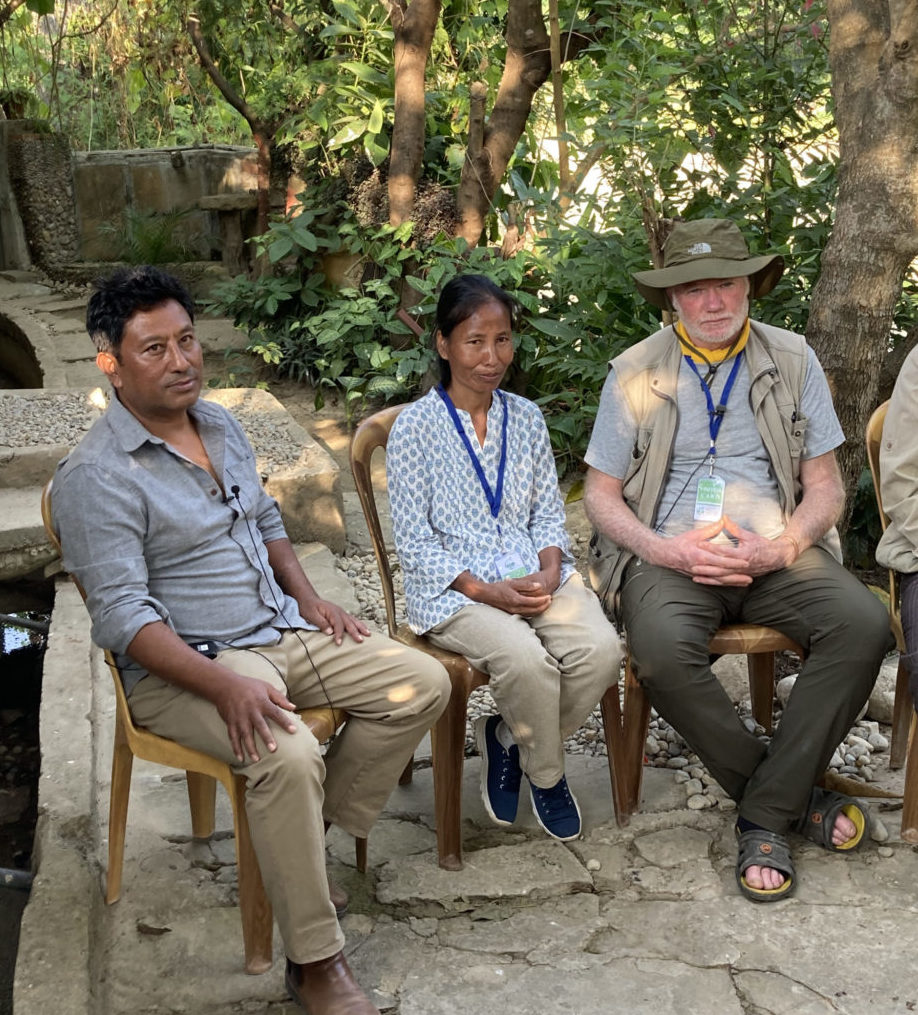by Ann Armbrecht, PhD
“Nowhere in healthy life do you find unlimited, linear growth. Rather you find bounded growth embedded within a context, and you find regulated processes of death and decay that accompany any growth process. The idea of a growth economy in capitalism is not an idea grounded in any understanding of healthy life processes.”
~ Craig Holdrege, Thinking Like a Plant
Growth within a context
As in most industries, growth in demand for herbal products is considered positive, an indicator that the market is strong, and that business will be good. Yet, as MacArthur Fellow and co-author of Limits to Growth, Donella Meadows said over 40 years ago, conversations about growth are meaningless in isolation. We need to be asking growth of what, at what cost, paid for by whom, and paid when.
See this recent New Food Order podcast, in which regenerative economics pioneer John Fullerton and venture capitalist Manuel Gonzalez, debated the idea of infinite growth on a finite planet, asking how might we balance growth and profit with maximum social and ecological benefit.
Elder berry and ashwagandha sales are increasing, for example. This means more elder berry is being purchased and shipped around the world. More elder berry products are on the shelves. What does that growth mean for the fields where the elder berry grows? For the workers caring for the elder berry shrubs and trees or processing the gummies that are increasingly popular?
“Nowhere in healthy life do you find unlimited, linear growth,” Holdrege writes, “Rather you find bounded growth embedded within a context.” What is the context of that growth? Equally important, what is the purpose of it?
Processing Ginger in Rural Nepal
In October 2022, with Briana Buckles, Senior Sustainablity Manager for Yogi; Marin Anastasov, then Chief Procurement Officer for Pukka Tea; Jan von Enden, then Head of Sustainability at Martin Bauer; and Terrence Youk, Videographer for SHI, I visited communities that grow certified organic ginger (Zingiber officinale, Zingiberaceae) for The Organic Valley Pvt Ltd. The Organic Valley is a processing company based in Nepal dedicated to expanding organic farming in Nepal and, in turn, to reducing the effects of climate change and improving the lives of Nepalese farmers.
Terry and I joined this trip to document the role that the medicinal plant trade has in rural livelihoods, conservation, supporting biodiversity, and building soil health and, especially to document the partnership between these three companies to support an agroforestry training program undertaken in ginger-farming communities.
We stayed at the processing center where the employees (120 in 2022, 97% of whom were women) wash, slice, and dry ginger during the harvest season. Sulochana Shrestha, who runs The Organic Valley with her husband, Samir Newa, manages the factory and lives on site during the 7-10-month processing season when the factory is operating.
“If They Are Not Happy I Can Tell Right Away”
When we spoke about what her job entailed, Sulochana began not by talking about the technical aspects of her work, but about the women workers and whether they are happy. Each morning at 8 am when the women sign in for work, Sulochana described how she looks at their faces. If they seem anxious, she says, “Today you seem very anxious. Are you okay?” And they don’t want to share with me,” she said. “They just say they are okay.”
In the evening, she said, she will go to their homes to ask again. And then they begin to express their feelings. They will talk about how they don’t have enough money. Or about their worries for their children. Or concerns about their husbands.
“I am a woman,” Sulochana said. “I am a mother. And when they are worried, I feel troubled inside. And so every morning I search their faces. Today are they happy? Or not? I started counting. If they are not happy, I can tell right away.”

Reducing Anxiety as a Performance Indicator
I asked why their happiness mattered. “I am a businesswoman,” she continued. “As long as they aren’t happy and as long as I don’t understand their feelings, they aren’t going to do good work. It won’t be a healthy environment. To make it be a healthy environment, I have to understand their feelings.”
In all of the processing centers I have visited over the years, no one has ever mentioned anxiety on the faces of the workers as an indicator of performance. They talk about the value of the work, of the income on people’s lives. But no one has ever really talked about how that work fits into those workers’ lives, what other pressures they face when they leave the work and return to their lives. Sulochana was the first who really seemed to talk about the women as women first. And then to see how the employment her company offered those women fits into their lives.
What about using these qualities as a measure? Greater skills at listening? Deeper understanding of the challenges their workers face? What about using greater ease in the faces of women who show up for work as an indicator for growth? What impact would it have to pay attention to that – alongside assessing moisture content of dried raw material – as something that also impacts the quality of the herbs and so the health of the company?
Conditions for Right Relationship
I asked Chris Evans, co-founder and advisor of Himalayan Permaculture Center (HPC) who has been working with farmers in rural Nepal for 37 years, what qualities he believes are crucial for success in working with the farmers. The ginger project was supporting barefoot consultants from HPC to offer permaculture trainings in some of the ginger growing communities and so Chris and the two trainers come by the processing center to meet us all.
Without hesitating, Chris shared his list: passion, trust, solidarity – that the farmers feel like you are coming from the same place, powers of observation – always look and understand before making a decision, connection with nature, a sense of ethics, caring for people and the earth. Samir, who was part of this conversation, added: intention and responsibility.

Jan interrupted the interview. “This gives me goosebumps,” he said. “So often we are talking about KPIs and returns on investments and measuring. We don’t talk about these things and yet these are getting closer to the essence.”
If these are the qualities that matter, the qualities that, in Chris’s experience lead to the successful relationships that in turn allow their work to be successful, what then are the conditions – the water, the nutrients, the warmth of the sun – needed to support these qualities? What allows each of us to be trustworthy and trusting? More passionate, more aware? Better listeners? More connected with the world around us and with our own internal set of ethics?
Nourishment
In a SHI webinar with producers, Shamiso Mungwashu of Fair trade Support Network in Zimbabwe said, “What I have realized over the years that I’ve worked in the communities that I work is that the relationship between the market and the producer be it the farmer or collector is a relationship of nourishment. It’s not one way. We nourish the market, and the market equally nourishes us. The relationship should not in any way be one where one of the parties becomes malnourished.” She added that this is where the issue of fair pricing comes up.
Fair pricing is a key way, of course, to support communities. But it isn’t the only way. Even before getting to questions of pricing, what about asking what is nourishment in a business relationship? What does it look like? How do you know both sides are being nourished or not?
If successful relationships are key to sourcing high quality herbs, as every individual experienced in this work has told me again and again, we need to be asking, what are the conditions needed to create and sustain these successful relationships? Those are the conditions that are important to grow. Knowing that our children, our family, ourselves are well nourished seems like a fundamental quality to help minimize anxiety. And so, what about making that be a goal for how your company grows?
Then growing demand is a vehicle for building more resilient smallholder communities, for increasing biodiversity, for generating more health and wellness for everyone along a supply network.
